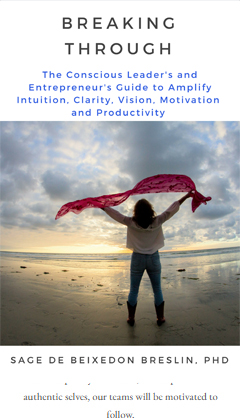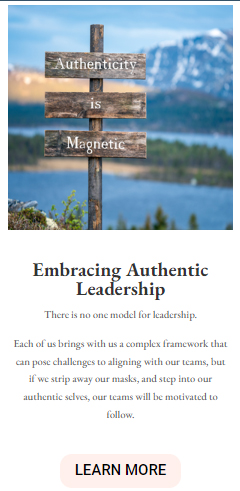Losing your Partner
We all come into this world alone and we all leave alone. But, if we’re really lucky, in between those two points, we enjoy some wonderful people along the way. Some folks move through life sampling, never really resting too long in any one place or relationship. For others, the search for a soulmate or life partner becomes tantamount. And, when two people find one another, they often struggle with the depths they are willing to reach together. They negotiate with themselves and one another to determine how vulnerable they can safely be in relationship. Eventually, they co-author an agreement about how they will be together.
Once couples have navigated those waters, they begin to stretch their wings. Each interaction furthers their commitment to one another, as well as the depth and breadth of their union. Eventually, they sample the relational sweetness that we all crave, and they are locked, mid-flight, in love. Once tasted, it’s nearly incomprehensible to give it up.
Losing a partner can be one of the most painful experiences we manage during our lives. Through that transition, we not only lose our mate, but we also lose all of the thoughts and fantasies of the future we have dreamed together. Suddenly, our heads are as empty as our arms. We feel ungrounded, and confused by the loss of direction. It’s as if our internal compass no longer has a true North.
Surviving the loss of a love requires that we accept the emotions that we experience as they come, without judgment. No matter what role we have played, who we have been, or how stoic and strong we have been in the past, losing a loved one can bring us to our knees. Emotional, and even sometimes physical, pain is inevitable. If you are able to embrace it, you will not waste your energy on resisting that reality. You’ll need your energy for far more important things than trying to avoid feeling pain.
The other really important element is obtaining support. If you have friends or family that love and support you through your loss, terrific. If you don’t have that kind of support available, grief counseling can provide a good alternative. While many survivors select individual psychotherapy first, they are often encouraged to join grief groups, where they can give and receive support from others who have also survived the loss of a loved one.
Coping Skills for Grief
As we age, it becomes far more likely with every passing year that we will lose those that are close to us. In our early years, it is “off-time” to experience the death of loved ones- it’s as if it’s not supposed to happen to us before we can really understand what it means for someone to die, and gain the support of our peers. But, as we age, the death of family members and friends becomes more and more common, not only for us, but for our peers as well.
That being said, even a sense of imminence and an awareness that death is an eventuality, does not really prepare us for the reality of death. The best we can hope for is to assemble a set of tools that eases our pain and enables us to better manage loss.
Essential skills for coping with loss
- Unwavering faith
Fear of the unknown is one of the most common issues addressed in therapy. Death, for most people, constitutes The Great Unknown, and therefore may be steeped with fear. Yet, just as easily as we might make an assumption that the unknown is bad or scary, we can develop a belief that the unknown is exciting or even blissful.
One of the most helpful tools we can possess in our coping toolkit is the belief that there is nothing to fear in death. Whatever your faith may be, it can carry you forward to that peaceful resting place. And, if you don’t believe in a God or gods, consider a little physics: imagine that you are just a bundle of energy in a body. Now, the body is gone and your energy can connect with all of the other energy around you. You are free, yet embraced by all. You are now one with everything. How could that be scary?
- Love never dies
Whether or not you believe in the Afterlife or reincarnation, you can rest assured that love never dies. We are not our bodies: we are the consciousness that lives in our bodies. Therefore, when our bodies expire, there is a consciousness that remains. What happens to that spirit or soul following the death of body has been in hot debate for thousands of years. And, no matter who’s right about what happens to the soul after death, it is clear that love is not part of our bodies- it is somehow connected to the spirit. As such, love, by nature, is eternal.
And, if you’re willing to accept that we do not need a body to connect or communicate with one another, then great comfort can be experienced in the awareness that you can continue to experience the love of friends and family long after they’ve passed.
- Free expression of emotion
Often, folks believe that they need to be stoic- either because they are themselves uncomfortable with the expression of emotion, or because they believe that they need to be strong for others around them. Parents frequently restrict their emotions because they believe that their children should not see them cry. Why they think that I have no idea.
Loss is painful for most. Even in situations where death comes as a great relief after a long dying process or following horrific physical pain, survivors feel a mixture of emotions. As feelings arise, they need to be expressed. The alternative is that the feelings just accumulate, and one day, when you’re not looking, they jump you! Consider that those feelings might even arise when you think it’s most inconvenient. But, hey, you won’t be in control at that point, so you choose. Feel them now, feel them later, just feel them.
As for kids, one of the most important things we can teach children is to listen to their bodies and to pay attention to their experiences. Children cannot be fooled- if you are experiencing strong emotions, kids can feel those emotions like vibrations on a tuning fork. If they ask you if you are sad and you respond that you are FINE, and you are not, your children will be learning how to lie, not how to manage grief. If you are sad, and your children see you cry, they will ask what’s going on. If you are able to identify your feelings, at the level that they can understand, you will actively be teaching your children that:
It’s OK to feel.
Feelings- even strong ones- won’t kill you and are not to fear.
Feelings are unique and have their own separate labels (e.g. sad, mad, worried).
Feelings aren’t forever- you may feel sad and cry, but eventually the tears will stop and you will return to what you were doing.
- Talk it out
We like to believe that grief is a private matter. So, many of us just keep it to ourselves. Bottled up, nowhere to go, grief expands like a gas trapped in a bottle. Eventually, the grief will choke the bottleneck and you won’t have a choice- you’ll either make yourself sick, or you’ll have to start talking it out.
Who you talk to is up to you. Sometimes speaking with friends and family works well. If the loss is communal- a family member or a friend that many people knew- then there will be lots of folks in the same position as you- grieving and needing to share feelings and memories.
Sometimes, it isn’t comfortable to share grief with family or friends. Losing a lover that no one knew about, or losing a friend to suicide are both circumstances which may not lend themselves well to family discussion. In these cases, and other situations in which it might be ill-advised to share with friends or family, professional listeners can be a great alternative. In addition to therapists and counselors, community as well as private grief groups are often available. If you’ve lost a loved one to Cancer, for instance, both the American Cancer Society as well as local hospitals offer support groups to those who have lost others to Cancer.
But, what if you’re just not willing to share your innermost thoughts and feelings with another human being? You are still not alone. There is nothing that says that you have to talk to a human about your loss. There may be equal if not greater, benefit to reaching out to the loved one that you’ve lost! Whether you speak out loud to your loved one, or share your feelings in sleep or meditative time, or even write your loved one a letter, all of these avenues are wonderful ways to give your grief a channel for expression.
- Write, right?
Probably second best to talking it out, is expressing your grief on paper (OK- computer screen if you must!). It can be as private or public as you make it: whether you write in a personal journal or blog your grief for the world to see, or any version on between, the flow of emotion from heart to hand can be a phenomenal release. And, if you’re afraid that someone will find your journal, feel free to write on any form of paper, then take it to the fireplace and set the paper aflame. No one said you had to keep what you write- just let it out.
- Creative flow
For many people, the expression of emotion isn’t facilitated by left brained activities like written or verbal communication. For this crowd, grief may be better managed through creative flow. Musicians may find it comforting to play or listen to music. Dancers may find relief in moving their bodies. Those who find joy in the creation or production of art may ease their pain by putting paint to paper, or through doodling, sketching, or coloring. Even scrapbooking and collage-making can liberate the self to express and articulate all that has welled up inside following loss.
- Move that body!
Despite the fact that you may want to just curl up and die after the loss of a loved one, you will eventually need to get up and move your body. While the signs and symptoms of depression may accompany grief (including but not limited to hopelessness, the desire to isolate, and the feeling that you are slogging through mud), it is important for your well-being that you make efforts to reinvigorate at some point. In addition to the methods identified above, simply moving around can provide some relief for your grief.
If you are an athlete, engage in your sport, but let go of any and all expectations that your performance will be anything close to optimal. During grief, movement will generate some pleasant endorphins and will remind you of who you are, but not what you can do. As the experience of grief moves through, most athletes begin to experience restoration to optimal performance.
If you are not an athlete but can exercise, use your favorite form of exercise to get those endorphins to kick in. In your waves of grief you’re not going to feel much like doing your least favorite form of exercise, so please don’t try!
Transitioning from death to life
While it may seem impossible to believe, at some point in time, the transition of your loved one will be complete and it will be your time to transition- back to life.
Grief has many stages. Kubler-Ross identified stages of sadness, anger, bargaining with God, desolation and acceptance and suggested that all who move through grief experience these stages- though not always in the same order. In addition to the stages that Kubler-Ross postulated, consider some additional stages of grief:
Keening
In tribal communities, one a member of the tribe dies, all gather together for a period of 24 hours during which they grieve, wail, and cry with reckless abandon. No matter how close the relationship between the deceased and the survivor, all engage in the keening. Following the all-encompassing expression of grief, the tribe gathers to celebrate the departed in a joyous feast! The process is both efficient and effective. Remaining members of the tribe are not distracted by their efforts to hide or express their grief and can be fully functional in the present. Those that have been lost are honored, and life moves on.
Consider what your life would be like if you gave in to your grief. If you took the time and energy to let all those feelings come up and out, and honored, instead of judged, them, imagine the energy freed by the process! And, if you were joined in the process by others who had experienced the loss, imagine the sense of support and connection you might feel, rather than the desperate loneliness that often accompanies loss.
Resolution
After the active stage of keening is finished and you are left to a less intense, wave-like process of emotional experience, you will begin to contemplate what things will be like after grief has passed. The loss will be real, and denial of the death will recede. This is when things get taken care of- wills are read, trusts are reviewed, homes are emptied and sold, and personal effects are explored and distributed amongst survivors.
In this stage, you may feel a desperate desire to be close to the departed and may treasure items associated with that person, or you may want to frequently visit a place special to both of you. Allow yourself the freedom to engage in the activities that allow you to manage the process, no matter how silly it might seem to others. In this stage, you may feel a desperate desire to be close to the departed and may treasure items associated with him or her.
Releasing
When all has been said and done, the active phase of grief will end. The need to keep your loved one close through objects or memories will fade. It is at that time that real release begins.
Resolving valence
Many people who have lost a loved one describe a sense that the loved one is near, even after they have passed. Some even see or smell their loved ones. Most express comfort through these experiences, though some are unsettled.
Consider the idea that our loved ones create an energetic tie to us during their lives- perhaps like a lifeline. When the person dies, the lifeline remains, until we willingly and intentionally detach the lifeline and release our loved one to the Divine. That lifeline is like a magnetic valence- our attachment to the person who’s passed inhibits their departure from this world.
When you have stabilized in your grief and you are ready to let go, choose a time and space to really connect with the one that you’ve lost- either through meditation or memory. Then ask any questions that remain, and say your final goodbyes. Then imagine them embraced in a beautiful platinum light until they shimmer and are consumed in the light. Allow yourself to experience the exhilaration of their complete union with the Divine, and know that as they complete this transition, they will be able to return to you in the silence whenever they choose. Remember, love never dies, and you are never alone.









